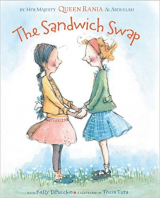(Thoughts from Paul D, M.Ed-serving as a Regional Education Consultant & Liaison for TCKI member families in Asia Pacific.)
It has been a lot of fun supporting TCK education in Asia Pacific! After growing up overseas attending British and American international schools (+ 1 week of homeschooling) in India and Egypt, it has been so great to give back to this vital ministry.
The growth of opportunities for parents’ ministry in the region has created a need for more options to allow families to fulfill that calling while maintaining the mental, emotional, and spiritual health of our families. When I was asked back in 2000 if TCKI wanted to be a part of developing an intermission network for support for families in the region I said “Yes!” and was excited that our leadership was equally enthusiastic. The start of AERC (Asia Education Resource Consortium – www.asiaerc.org) was an opportunity to increase our support for families using homeschooling, national, and international school options.
Over the years this has grown to a team of over 20 education specialists supporting families through an annual conference (FEC – Family Education Conference), monthly support from a consultant, a monthly newsletter full of resources, achievement and diagnostic testing support, the REACH program to support students with special needs, a high school/college prep program, and ProNet, a professional development program to support education specialists within our organizations. God is so good!
During the annual Family Education Conference (usually held in Chiang Mai, Thailand, around the lunar New Year), parents can attend in-service training as home educators, individual consultations, network with other parents, attend a variety of workshops on education and member care, and the kids have their own program with staffing from sending countries focused on their specific TCK needs. There’s even a date night on Thursdays for parents! The FEC is the main platform for receiving achievement testing and diagnostic testing as well from school psychologists.
I met my wife Larissa during my very last retreat with TCKI, which was also held in Chiang Mai, Thailand. After graduate school and our wedding, we returned to Cambodia where my wife had finished her first term working with children and anti-human trafficking. I was thrilled to serve as school counselor at a TCK school that was just forming its high school (Hope International School) in Phnom Penh. I had wanted to be a high school counselor since high school in Egypt and now it was happening! It was a wonderfully exhausting time building something from the ground up in the “Wild West/East” of Cambodia, where laws are suggestions, and uncertainty is part of daily life! God was so good to us and our three children were born during that time.
In 2016 we moved to Penang, Malaysia, where I now get to serve (on the beach!) as high school counselor at Dalat International School, a school founded in Dalat, Vietnam, in 1929 for TCKs. During the Vietnam war the school relocated to Malaysia and kept the name. In 2000 the school became an independent Christian international school for TCKs and in 2012, when the Malaysian government made is easier for Malaysians to attend international schools, we greatly expanded the number of Malaysians attending Dalat, with many learning about Jesus for the first time in class, chapel, and mentoring relationships! Today we are approximately 50% TCK, so we have the thrill not only of discipling TCKs but reaching the lost as well!
In my experience, I have noticed several factors that have helped families enjoy a successful education experience overseas.
Realistic Expectations
Quite often the difference between what we expected our family’s educational experience to be compared to what it actually is can be quite large. That difference in expectation is sometimes referred to as dissonance, and the greater the dissonance the greater the amount of frustration and anxiety. In the flow of care provided by TCKI regarding educational planning, this dissonance is greatly reduced by making our expectations as realistic as possible. Still, once we get to the field and experience these differences first-hand it can still be an emotional/psychological hit when things don’t go the way they are expected to go.
If you find yourself in this situation, please know you have legitimate reasons for feeling the way you do and it’s vital to reach out for support in re-assessing your options. Having a plan to reassess annually can offset this dynamic as well. This can be done in consultation with co-workers, TCKI, AERC consultants, sessions at the Family Education Conference, or via the great resource World Family Education.
I recommend never saying “never” to any particular education option, as we may find out that a particular option, at first never considered, may in fact become the best option given the unique circumstances and changes in cross-cultural work life.
Ask questions, ask for help, and ask for permission. As best you can, please be in regular communication with leadership about the educational issues you face and the need to explore new options if necessary. Things always go better when this is done proactively and not with an “act first, ask forgiveness later” approach. Leadership is a powerful tool of support if utilized well! I’ve heard countless colleagues’ express frustration only to learn that their mindset and negative strategy with leadership hindered them from success. Leadership wants to help!
Transition Cycle
I’m always excited to find out that for an increasing number of personnel the dynamics of the Transition Cycle as explained in the book Third Culture Kids-The Experience of Growing Up Among Worlds by David C. Pollock and Ruth E. Van Reken have become part of our lexicon as cross-cultural workers. Knowing the stages of the cycle remind us of the impact that transition makes on our personal and educational lives. For more on this I recommend the excellent book Safe Passage by Douglas Ota, in which he outlines recommendations to turn transition from one of the most damaging factors in learning to its rightful place as one of the greatest positives of TCK education. You can find more information at Safe Passage Across Networks (SPAN).
Thriving parents, thriving families, thriving kids
Over a period of nine years with TCKI, I visited families and stayed in homes in 81 countries. My homestay observations of thriving, resilient families showed that families thrive when, amongst other things, parents take care of themselves holistically, view family as a priority over ministry, utilize best practice ideas in transition and member care, allow their kids to develop their own personalities, strengths, and ministries, balance control with support in failure, are willing to adjust to changes, and view their home as a sanctuary rather than the primary locus of ministry with nationals. Those who chose the latter were still vibrant when boundaries demonstrated a clear distinction of part of the house being for ministry and part being for family.
Self-care understanding tells us that we’re only able to help our kids to the extent that we take care of ourselves and our family systems. All of these factors create an amazing backdrop where our kids can thrive academically, even in challenging times of civil war and/or global pandemics.



